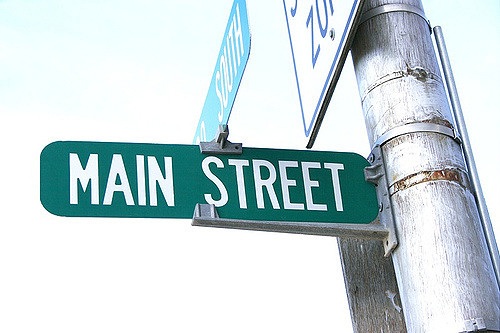
In a recent interview Democratic Vice Presidential Candidate Tim Kaine admitted that a Hillary Clinton White House would look to increase the burden of Dodd-Frank regulations in a misguided effort to help “Main Street”. The irony of Kaine’s plan is that small businesses on America’s Main Streets are already being crushed by Dodd-Frank regulations, and increasing such regulations will only serve to worsen the problem.
Speaking on CNBC’s “Closing Bell” Kaine made it clear his goals are aligned with the far left liberal branch of the Democratic Party. Kaine praised Sen. Bernie Sanders (I-Vt.) and Sen. Elizabeth Warren (D- Mass.) saying both, “have really important ideas that they’ve put on the table.” Clearly Kaine and the Clinton campaign are grossly out of touch.
Kaine went on to say that “we’ve got to keep regulation…on Wall Street, so that Wall Street doesn’t tank Main Street again” and that, “we put Dodd-Frank in place for a reason, and we want to strengthen it.” However the fact is Dodd-Frank has done nothing to improve the economic health of small businesses and has instead reduced access to the credit and capital many on Main Street need to survive and grow.
It is no secret that new and small businesses play an outsized role in creating jobs and opportunities in the U.S. economy. Yet new reports show a massive decrease in new business growth in recent years, and that slow down has been a product of reduced borrowing opportunities for new and small businesses.
For example, in 1980 firms in their first year accounted for 13 percent of all companies, but since 2010 that rate has fallen to around 8 percent. Similarly, in the 1990’s the average new business hired over 7 workers, while in 2011 the average new business hired roughly 4 workers. Tim Kaine would clearly attribute this reduction to Hillary’s narrative of “Wall Street is crushing the little guy”, but such an argument is misplaced and simply political rhetoric.
The fact is two of the most disastrous results from Dodd-Frank that have impacted growth in small businesses are reduced access to credit due to community bank closures and consolidation, and an economically crushing regulatory burden.
Community banks (those with less than $10 billion in assets) serve as a primary source of credit for many new and small businesses. According to a 2015 Small Business Credit Survey, small business loan applicants were successful 76 percent of the time at small banks, versus 58 percent of the time at large banks.
Yet since the passage of Dodd-Frank, such sources of credit for many on Main Street looking to start or grow small businesses have dried up. In fact, since Dodd-Frank was enacted, the number of community banks has shrunk by 14 percent. Thus it should come as no surprise that since 2008 small businesses have seen a 15 percent decrease in lending.
Thus the issue is why Tim Kaine and Hillary Clinton would want to “strengthen” Dodd-Frank in order to “help” Main Street. Clearly the resulting regulatory burden of Dodd-Frank has done nothing to help small businesses and instead has limited access to credit and inhibited economic growth on Main Streets across America.
Photo credit: Emily

